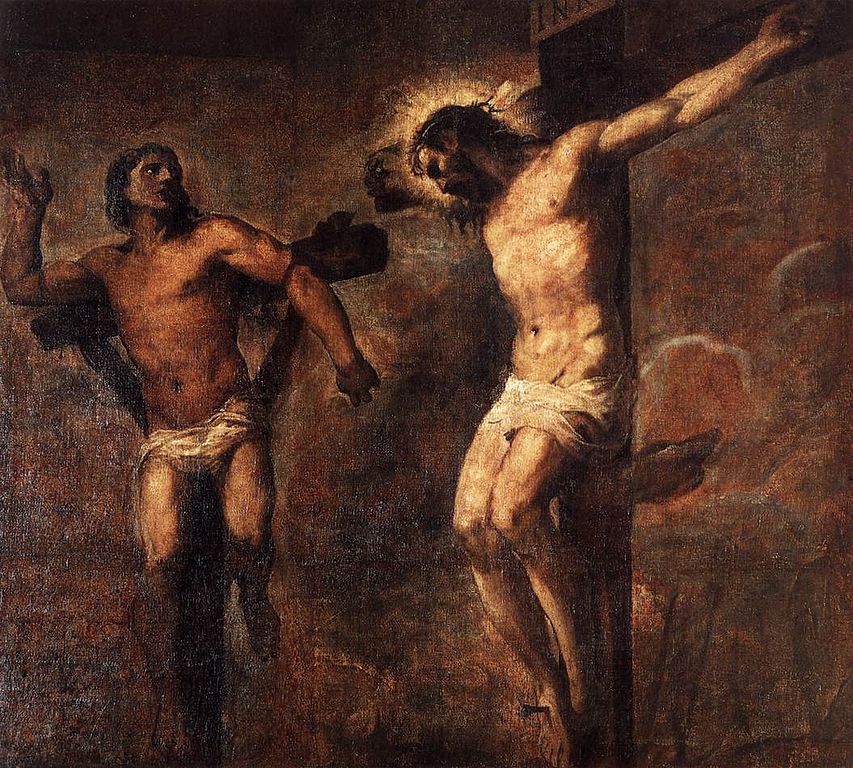St. Dismas
by Peter Garringer, Former Kaio Community Member
My grandmother loves to tell a story about a boy who attended preschool at the church where she worked. One day, the boy found two planks (not sure where the planks came from; presumably the school wasn’t a construction zone…) and laid them on the ground perpendicular to one another. He lay down on them and stretched out his arms as if he were on a cross. Another boy approached him and asked, “Are you Jesus?” “Nope,” came the reply, “I’m the robber.”
The robber he’s referring to is mentioned briefly in Luke 23. Luke doesn’t name him, but church tradition has assigned him the name Dismas, going so far as to canonize him. What’s all this fuss for a person who speaks only twice and dies in agony and anonymity? The significance is found in what is communicated by his select words, words to and about Jesus, words which have been ringing in my head and heart for months.
One day I flipped through Luke’s Gospel, headed for the Emmaus story after which we’re named in Luke 24, but my eyes caught the crucifixion account one chapter prior. As Jesus hung between two criminals, insults and scorn were heaped upon Him. One criminal added his voice to the chorus, challenging Jesus to save Himself (and His equally unfortunate comrades) from death. But he was rebuked by the most unlikely of advocates—the other criminal, our St. Dismas. “Don’t you fear God,” he charged, “since we’re under the same sentence of condemnation? And we’re surely getting what we deserve, but this man has done nothing wrong.” Then, he turned to Jesus and said, “Jesus, remember me when You come into Your Kingdom.”
When You come into Your Kingdom…
For Jesus’ contemporaries, including the disciples in the Emmaus story, cross and Kingdom were mutually exclusive. You couldn’t have both; either you were crucified a loser, or you defeated Rome by establishing your own kingdom, preferably God’s Kingdom. But obviously Jesus didn’t see it like this. Jesus expected God’s deliverance despite having the appearance of one cursed by God, and He was not alone in this perspective. He was joined by this dejected man with hours to live, those hours being among the most tortured in his presumably already difficult life. St. Dismas still expected Jesus to come into a Kingdom. Though I’d surely read the story before, I was struck by his faith and perspective with remarkable freshness that as I read that day.
Where do you and I receive our perspective? From the world or from God? Do we look at the darkness in the world, in our lives and the lives of our men, as a defeater or as an opportunity for God’s most surprising deliverance through Jesus? Do we look at people reaping what they sow (Dismas admits, after all, to deserving his punishment) as the last word, or do we hope for and expect a gracious, divine encounter with Jesus in the midst of that cycle? Dismas comes and goes so quickly, but we have much to learn from his faith and the eyes with which he saw Jesus. May God by His Spirit bestow us that same vision and hope.

